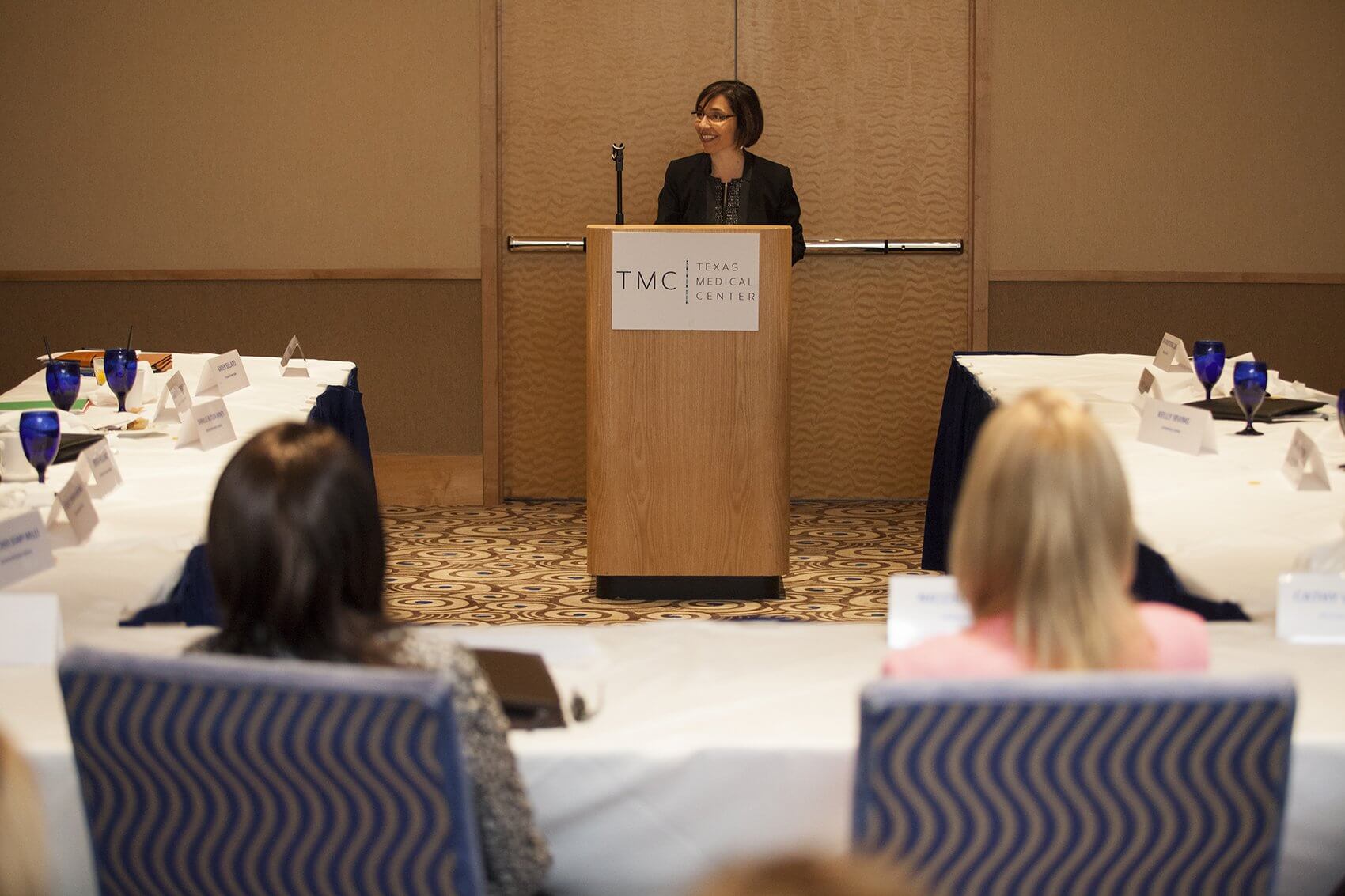Leading Change

Nestled in a private dining room at the far end of Treviso Restaurant, an atmosphere of solidarity and support reverberated throughout the graduation ceremony that took place on Friday, February 20th. Championing 16 seasoned nurse leaders from a diverse cross section of institutions, the ceremony commemorated the inaugural class of the Texas Medical Center’s Nursing Leadership Institute (NLI).
“I want to congratulate all of you for your hard work,” said Robert C. Robbins, M.D., president and chief executive officer of the Texas Medical Center, at the ceremony. “My hope is that you have not only learned some invaluable information and gathered the tools to make a difference as leaders, but that you’ve also made lifelong friendships with people who you might otherwise not have had the opportunity to meet.”
In alignment with the Institute on Medicine (IOM) 2011 report on The Future of Nursing: Leading Change, Advancing Health, the NLI was designed to improve the delivery of health care through the development of sophisticated collaborative leadership skills for a wide range of disciplines.
“I might be a little biased, but it’s my favorite report that I’ve encountered,” said Lori Armstrong, senior vice president and chief nursing officer of Texas Children’s Hospital. “This report focused on nursing as the lynchpin to improve health care outcomes in the United States and meet the goal of health care reform. […] It validated the critical role that nurses play in improving outcomes.”
“It highlighted four essential themes,” she added. “First, that RNs should practice to the highest level of their educational training, with limited restrictions. Second, it’s essential that nurses achieve higher levels of education. Third, they must be put in positions where they are recognized as full partners with their colleagues. Last, but not least, work force planning, data, recruitment and retention are crucial. We must arm the United States with the number of qualified nurses that it deserves.”
Armstrong, also interim chair of the Texas Medical Center’s Nursing Executive Advisory Council, noted that the IOM’s report on the future of nursing was essentially a call to action—for the government, academia and health care organizations to all partner together in support of necessary and radical changes in nursing.
The six-session course met monthly on Thursday and Friday for a total of 96 hours of didactic lectures, discussions, peer coaching, and case-based learning. Lecturers throughout the course included health care leaders from the Houston community and content experts from participating institutions. Each student—all of whom were hand selected by their CEO or CNO to participate in the program—chose an organizational specific improvement project to impact outcomes for their patients.
“Our mission was to create an inter-institutional nursing leadership institute that will help advance the practice of nursing and the delivery of health care by creating leaders who drive transformation,” concluded Armstrong. “Now we have 16 leaders who are going to do just that. Our goal is to become world renowned as a premier nursing leadership institute—one that elevates the practice and profession of nursing through inter-institutional collaboration and cross disciplinary interactions.”







